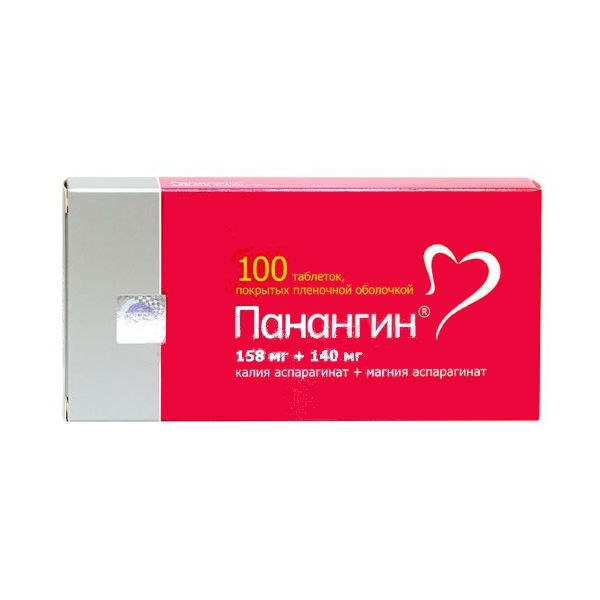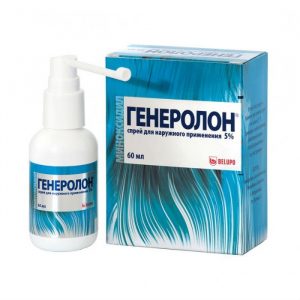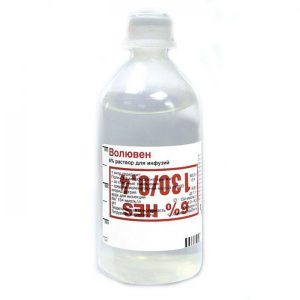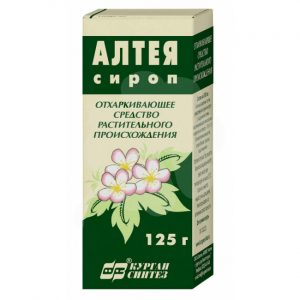Description
Pharmacological action
The most important intracellular cations K + and Mg ++ play a key role in the functioning of numerous enzymes, in the formation of bonds between macromolecules and intracellular structures and in the mechanism of muscle contractility. The intra- and extracellular ratio of potassium, calcium, sodium, and magnesium ions affects myocardial contractility. Endogenous aspartate acts as a conductor of ions: it has a high affinity for cells, due to the slight dissociation of its salts, ions in the form of complex compounds penetrate into the cell. Magnesium and potassium aspartates improve myocardial metabolism. A lack of magnesium / potassium predisposes to the development of hypertension, atherosclerosis of the coronary arteries, arrhythmias and metabolic changes in the myocardium.
Indications As an additional agent for treating chronic heart disease (heart failure, post myocardial infarction). heart rhythm disturbances (primarily ventricular arrhythmias), in the treatment with digitalis, replacement therapy with a lack of magnesium / potassium in food.
Contraindications
Hypersensitivity to any of the components of the drug, acute and chronic renal failure, hyperkalemia, hypermagnesemia, Addison’s disease, atrioventricular block I-III degree, cardiogenic shock (blood pressure less than 90 mm Hg). amino acids, severe myasthenia gravis, hemolysis, acute metabolic acidosis, dehydration.
Precautions
Pregnancy (especially in the first trimester) and during lactation.
Special instructions
Patients with diseases accompanied by hyperkalemia require special attention: regular monitoring of the ionogram is necessary.
Influence on the ability to drive a car and perform work associated with an increased risk of injuries: does not affect the ability to drive a car and engage in activities that require increased concentration of attention and speed of psychomotor reactions.
Composition
Active ingredients:
Magnesium asparaginate 140.0 mg (in the form of magnesium asparaginate ² Ñ 4 Ñ2 Ñ – 175.00 mg)
Potassium asparaginate 158.0 mg (in the form of potassium asparaginate ² Ñ 1/2 Ñ2 Ñ – 166.30 mg )
Excipients:
Silicon dioxide, colloidal – 2.00 mg, povidone K30 – 3.30 mg, magnesium stearate – 4.00 mg, talc – 10.00 mg, corn starch – 86.10 mg, potato starch – 3 , 30 mg in the core of the tablets.
Shell composition:
Macrogol 6000 – 1.40 mg, titanium dioxide Tsv. ind. 77891, E171 – 5.30 mg, butyl methacrylate, dimethylaminoethyl methacrylate and methyl methacrylate copolymer [1: 2: 1] – 6.00 mg, talc – 7.30 mg.
Dosage and administration of
Before use, consult your doctor.
Inside, the drug should be used after meals, as the acidic environment of the stomach reduces its effectiveness.
Usual daily dose: 1-2 tablets. 3 times a day. Maximum daily dose: 3 tablets 3 times a day.
The duration of the drug and the need for repeated courses is determined by the doctor.
Side effects of
Nausea, vomiting, diarrhea, discomfort or burning in the pancreas (in patients with anacid gastritis or cholecystitis), atrioventricular block, paradoxical reaction (increased extrasystoles), hyperkalemia, diarrhea, nausea are possible hypermagnesemia (facial flushing, thirst, decreased blood pressure, hyporeflexia, respiratory depression, convulsions).
Overdose
Symptoms: impaired conduction (especially with previous pathology of the conduction system of the heart).
Treatment: intravenous administration of calcium chloride, if necessary – hemodialysis and peritoneal dialysis.
Storage conditions
At a temperature of 15-30 ° C. Keep out of the reach of children.
Deystvuyuschee substances
potassium and magnesium asparahynat
Conditions for drugstore from
Without a prescription
dosage form
tablets




